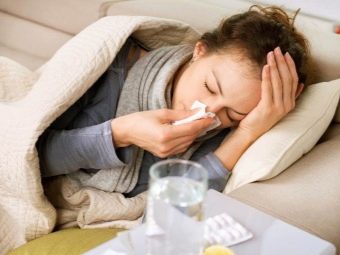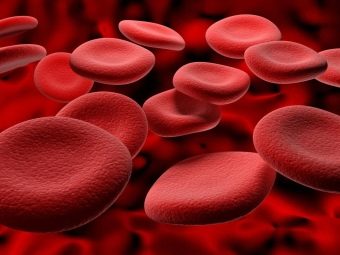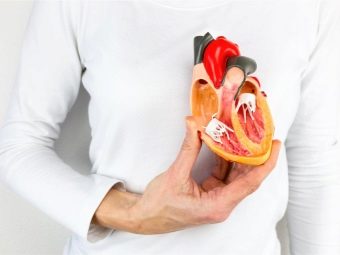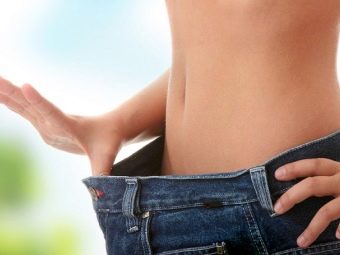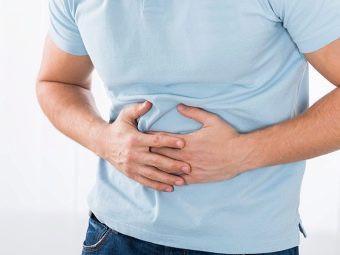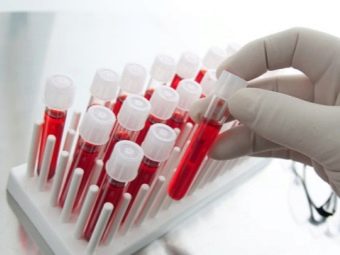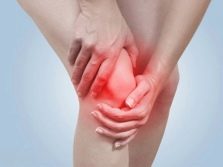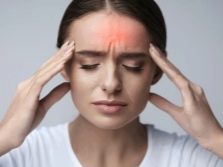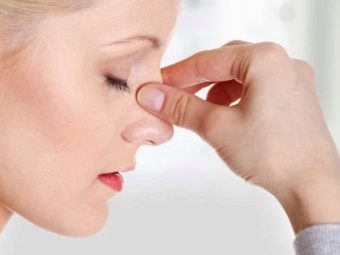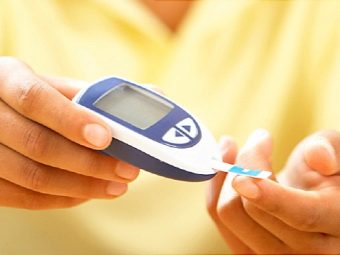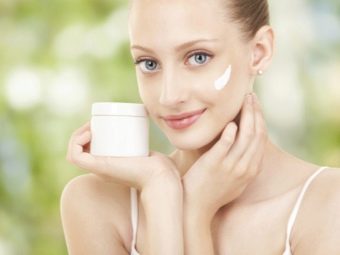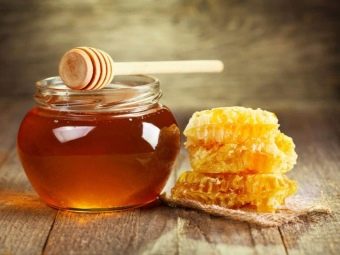The benefits and harm of honeysuckle
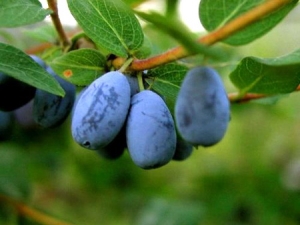
Honeysuckle is a small shrub known for its fruits. Dark with a slight waxy bloom, they have healing properties. However, the leaves and the bark of the plant also benefit the body.
Chemical composition and caloric content
As part of the berries are essential oils and polyphenolic compounds that regulate a number of vital processes in the body, have antioxidant properties. The content of tannins and pectin in them is quite high. If we talk about vitamins, then by the presence of ascorbic acid in it, honeysuckle can claim the title of champion. Vitamin C in it, really, a lot. In addition, there are vitamins B and A. Of the trace elements available in the berries, you can select calcium, zinc, iron, sodium, potassium, magnesium.
Fresh honeysuckle berries are a low-calorie product. 35–40 kcal per 100 grams of fruit. The number of calories increases when drying berries.
Nutrition Facts and Glycemic Index
The glycemic index of the fruit is 20–25 units (depending on the degree of maturity and variety), so the fruit can be consumed with diabetes. BJU fresh berries look like this (in grams) - 0.03 / 0.01 / 7.8. More than 70% of the composition of berries is a structured liquid. Carbohydrates are mainly represented by pectins and sugars. The number of the latter may depend on the variety and climatic conditions of growth. In warmer climates, sugar levels increase.
Benefit for health
Honeysuckle berries are considered an effective means to reduce the level of "bad" cholesterol in the blood, improve the activity of the cardiovascular system. Due to the antioxidant action, they remove toxins from the body, strengthen the heart walls, prevent the formation of cholesterol plaques on the inner walls of blood vessels. Magnesium and potassium support the heart muscle, strengthen it, normalize the cardiac cycle. All this makes honeysuckle a natural and effective remedy in the fight against hypertension. They allow you to gently reduce and stabilize high blood pressure.
In addition, due to similar effects on the heart and blood vessels, it is possible to reduce the likelihood of diseases such as atherosclerosis, heart attack, stroke, hypertension, and varicose veins.
The rich vitamin-mineral composition and the presence of ascorbic acid in it gives the honeysuckle immuno-strengthening properties. Strong immunity is easier to resist colds, less susceptible to the negative effects of environmental factors. Honeysuckle is useful in the season of flu and colds, it will save from beriberi, breakdown. It may be recommended to include berries or derivatives from it in the menu of schoolchildren and people experiencing increased physical and mental stress. During a cold and at the stage of recovery, the juice and decoction of the berries will help you recover faster.
Honeysuckle, more leaves, has bactericidal and anti-inflammatory properties, so the decoctions based on them are used to treat respiratory diseases, including gargling. By the way, thanks to these properties, honeysuckle decoction will also be an effective remedy for rinsing with stomatitis, gingivitis and other oral diseases. Honeysuckle, as already mentioned, is one of the powerful antioxidants. It removes toxins, wastes from the body, binds radionuclides. The latter are a “defective” molecule that cannot function qualitatively and, moreover, attacks healthy cells. By the way, the picture described is one of the options for the development of oncological diseases. Turns out that regular consumption of berries is one of the preventive measures in the fight against cancer.
Important! Honeysuckle is useful to eat and people living in an environmentally unfriendly region, working in hazardous industries.It has been revealed that the components of its composition are capable of removing heavy metal salts and neutralizing the effects of radiation exposure on the body.
Gray berries have a positive effect on the digestive tract. Dietary fiber and pectins improve intestinal motility, remove slags from it. Organic acids stimulate the production of gastric juice (the same action demonstrates strontium contained in honeysuckle) and maintain acid-base balance. All this contributes to better digestion of food and the ability to get rid of such unpleasant effects of indigestion, like heaviness in the stomach, heartburn, and increased gas formation. In addition, metabolic and lipid processes are accelerated with a better, more complete and efficient assimilation of food.
Honeysuckle leaves with antibacterial properties will help restore the intestinal microflora, inhibiting pathogenic. As an aid, a decoction based on them can be used for dysbiosis, it will help to recover from treatment with antibiotics. With its astringent characteristics, fresh berries can get rid of diarrhea. It should be noted the benefit of honeysuckle for the skeletal system. Berries and other parts of the plant contain calcium and sodium. In addition, they are involved in the process of blood formation, the functioning of the nervous and muscular systems.
The presence in the composition of vitamin B, calcium and sodium allows us to consider the berries as a means to improve the work of the central nervous system. Under the influence of these elements, the process of transmission of nerve impulses is accelerated, the nervous system is strengthened, and sleep is normalized. The combination of vitamin B and phosphorus in the composition has a beneficial effect on the brain vessels - improving cognitive function, cerebral circulation. Berry-based decoctions are recommended for irritability, sleep disorders. Garden honeysuckle has diuretic characteristics that are more inherent in the bark of the plant. Broths based on it cope with the task of removing excess fluid from the body, help get rid of puffiness.
Due to its antifungal, bactericidal and regenerating properties, as well as vitamin B, honeysuckle is used to treat dermatological diseases. First of all, we are talking about psoriasis, eczema. For their treatment, as a rule, they drink juice from honeysuckle berries. A similar effect has the tea from the leaves of the plant. These properties have a blue, or rather, a dark blue, almost gray honeysuckle.
For men
Undoubtedly, the honeysuckle properties described above are useful for men. As you know, they are more than women susceptible to cardiovascular diseases. Aggravating the situation and bad habits, work on heavy production, especially the nervous system. Regular intake of honeysuckle berries helps to partially neutralize these harmful factors and reduce the risk of heart attacks and strokes in men. The antioxidant effect of the fruit makes them useful for smoking men, because it removes toxins and poisons from the body, helps soften smoker's cough, strengthen the immune system.
Useful berries for men's health due to its composition. Selenium and vitamin B are present in them. The first acts on the thyroid gland, and together with vitamin B contributes to the production of the main male hormone - testosterone. It is this hormone that determines the quality of sperm and partly the mobility and viability of sperm. Testosterone deficiency can cause problems with libido, it also affects the performance and endurance of men.
Honeysuckle berries are recommended to be included in the diet and athletes - testosterone is necessary for building muscle. The diuretic and antibacterial properties of the fruits make them one of the preventive agents against inflammation of the prostate gland and other diseases of the genitourinary system.
For women
Women often use honeysuckle juice to improve skin condition.Its antioxidant effect is manifested by the ability to slow down the aging process of cells. Acceptance of juice, as well as its use in the composition of face masks allows you to maintain the elasticity of the skin, prevent the appearance of early wrinkles. No less useful fruits and hair. In general, honeysuckle as a “beauty berry” can be considered thanks to vitamins, zinc, magnesium and manganese.
Due to hydrocyanic acid in the juice of honeysuckle it is used as an external antifungal agent. The presence of organic acids and tannins provides a light drying and antibacterial effect when using honeysuckle juice externally. This, in turn, allows you to apply it to the care of oily and problem skin. Many women use honeysuckle, juice and decoctions based on it as a means for losing weight. As already mentioned, such a snack or dessert is not calorie, but it improves digestion and helps speed up metabolism. Of course, the berries themselves will not help to become healthier and slimmer, but in combination with the right balanced diet and appropriate physical exertion also play a significant role in reducing weight.
Strengthening, toning and anti-cold characteristics of honeysuckle make berries useful during pregnancy. Iron in their composition, as well as a generally beneficial effect on the heart and blood vessels, turns them into a means of prevention against anemia. They will support and strengthen the heart, which during the period of gestation has to pump almost 2 times more blood. The berries positively affect the digestive tract organs, in particular, they will relieve heartburn. Due to the antioxidant property, the juice and compote of honeysuckle will cope with attacks of toxicosis, they will return the lost appetite. Edema, especially of the lower limbs, is a problem for many pregnant women, starting from the second trimester. Thanks to the diuretic properties of the berries cope with puffiness.
For kids
Honeysuckle for children is, first of all, an immunocontractive and anti-cold remedy. Magnesium, carotene and vitamin A in the composition make the fruit useful for vision. Finally, a decoction of berries or bark is used to stimulate the appetite. It is prepared concentrated, and in a small amount it is taken before the meal.
At the same time, it is still better for children to cook broths on berries rather than bark, since the latter is more likely to cause constipation.
Harm to the human body
Honeysuckle is contraindicated in case of individual intolerance. Caution should be included in your diet for people who are allergic to red and dark purple berries and fruits. Because of the pronounced ability to reduce the pressure of the berries should be taken with caution in hypotension. Otherwise, you can provoke a sharp drop in pressure, dizziness, convulsions, fainting.
Pregnancy and lactation are not a contraindication to the consumption of berries. However, they can cause constipation, which is already a fairly common problem in women in the situation. In addition, gray fruit can cause allergic reactions. If there was no negative response from the body to the consumption of berries, then during hatching and breastfeeding of the baby, the honeysuckle will not harm. During lactation, it should be included in the mother’s diet not earlier than 3-4 months after delivery.
It is not recommended to give berries to children under 5 years old. When using medicinal infusions for children, it is desirable to reduce the concentration of raw materials (berries, leaves, bark) by 2-3 times. Ideally, these formulations should be used only after consulting a pediatrician. During the period of exacerbation of diseases of the digestive tract, as well as the pancreas, honeysuckle berries, as well as infusions from the leaves, the bark is prohibited.
As with any product, honeysuckle is useful only with moderate consumption. Abusing, you can provoke abdominal pain, colic, constipation. However, the consequences of overeating berries are not always so obvious.Sometimes it may indicate a high content of red blood cells in the blood test. In the absence of contraindications for an adult, 100 grams of berries are considered the norm. In season they are best consumed fresh. The stock can be dried, canned and frozen berries, they almost do not lose the healing effect.
Important! You should make sure that before you eat edible berries. Bright red or yellow fruits are poisonous. However, some shrubs with blue-gray berries may appear so. Signs of poisoning are nausea, convulsions, tachycardia, difficulty breathing. If such signs appear, you should immediately seek medical help.
Therapeutic use
The rich composition and many useful properties allow the use of honeysuckle for medicinal purposes. So, decoction based on flowers and leaves is indicated for indigestion, constipation, and colic. It is suitable for the treatment of colds, acute respiratory infections. Tea on the basis of inflorescences can be consumed inside as a warm drink - it will have antipyretic, anti-inflammatory and immuno-strengthening effect. Concentrated infusion of leaves and flowers suitable for gargling with pharyngitis, laryngitis. For the same purpose in the decoction of the leaves, you can add the young bark of the shrub.
Fresh berries are used to improve digestion, strengthen the immune system, prevent colds, beriberi. A decoction of inflorescences and leaves of honeysuckle, as well as fresh berries are used to treat constipation, while decoctions on the bark of the shrub - to eliminate chronic diarrhea. In other words, honeysuckle and strengthens, and weak. It all depends on the type of raw materials used and the characteristics of its preparation. A decoction of the leaves and bark of the shrub helps improve appetite. With increased acidity of the stomach, gastritis is useful to drink jelly with honeysuckle.
Juice and berry extract are used to treat diseases of the joints, gout, dermatological ailments. As a rule, they are used externally. From the bark of the plant is preparing a decoction, which is added to the therapeutic bath. Honeysuckle flowers help to cope with migraines, headaches, and are also effective in diseases of the urinary system - liver, kidneys, and inflammation of the bladder. Inflorescences are also brewed to eliminate colic and stomach pain.
With increased pressure
Honeysuckle is widely used for the treatment of cardiovascular diseases, in particular - hypertension. It should be understood that a persistent increase in blood pressure (BP) is not an independent disease, but, most likely, a consequence of certain violations in the body. That is why the treatment of hypertension should be comprehensive. In any case, it is better to consult with a specialist and apply honeysuckle as one of the directions of treatment. The ability of honeysuckle to reduce pressure due to its effect on the heart and blood vessels.
With regular use, cholesterol levels are reduced, as well as the risk of atherosclerotic plaque formation, the vascular walls become stronger, they become more elastic. It is thanks to this that honeysuckle lowers blood pressure.
Thanks to the gland in the composition of the berries, it is also possible to increase the level of hemoglobin. This means that the blood is saturated with oxygen and carries it to the organs and tissues. Thus, honeysuckle is effective for reducing blood pressure, and also helps prevent the development of anemia.
One of the symptoms of hypertension is nasal bleeding. The use of honeysuckle eliminates this symptom. The positive effect of honeysuckle in hypertension is manifested even with the constant use of fresh berries, but if you need a more effective method of treatment, it is better to prepare a healing composition. On one glass of washed berries need to pour 2 glasses of water and bring the mixture to a boil, then a little more then it on the fire. Insist wrapped in a towel for 3-4 hours. Strain and take 5 times a day for a quarter cup for 3 weeks.
Another recipe offers to rub a glass of fresh berries, pour 300 ml of boiled water into the resulting gruel, mix and remove for a day in the refrigerator. After a specified time, the healing composition is ready for use. If desired, it can be filtered. Take ½ cup daily. The course of treatment lasts 2 weeks, after which a week-long break is taken.
The following composition is prepared from the leaves of the plant. Suitable both fresh and dry. At 300 ml of water is taken 2 tablespoons of raw materials. The composition of the torment for a quarter of an hour in a water bath, and then insist a few hours (you can before cooling). Take one or two sips three times a day before or after meals. The duration of treatment is a month.
With diabetes
The low glycemic index of the honeysuckle berries, low calorie content and the almost complete absence of glucose - all this makes the berries useful for diabetics. Moreover, they stimulate insulin production without loading the pancreas. With the consumption of honeysuckle is not detected a sharp jump in blood sugar, since the fiber in its composition slows down the process of sugar absorption. In addition to these properties, honeysuckle helps to partially offset the unpleasant manifestations of the disease that usually accompany diabetes. First of all, it is about strengthening the immune system, a positive effect on the cardiovascular system.
Due to its diuretic action, honeysuckle can cope with the swelling, often occurring in the first stage of sugar disease. It is also effective in treating trophic ulcers accompanying the ailment. Diabetes mellitus is always endocrine and metabolic disorders. Fruits have a positive effect on hormones and the digestive tract, remove toxins. This allows you to improve the functioning of the thyroid gland, to accelerate metabolic processes.
In the second type of diabetes, fresh berries, juice from them, infusions and decoctions of the leaves are useful. You can cook jams and preserves from the fruit, but you should monitor the sugar content in them. Daily dosage for diabetics - no more than 100-120 grams of berries every 2 days. To reduce the level of sugar from fresh berries, you can prepare an infusion - 20 grams of berries, pour 100 ml of boiling water and leave for 3-4 hours. Strain, take before meals 3-4 times a day. Before each reception should prepare a new composition. The course of treatment is 2 weeks. Similarly, preparing the infusion of the leaves. However, 20 grams of leaves are taken per 100 ml of boiling water. Take the composition of a tablespoon three times a day. In addition, it can also be used to treat trophic ulcers.
Application in cosmetology
Antioxidant action, a large amount of vitamins of group B, zinc, selenium and a number of other trace elements allow the use of honeysuckle in cosmetology. Today, honeysuckle extract can be found in well-known creams and masks. As a rule, it is introduced into them as an anti-aging, anti-inflammatory and capillary-strengthening component. However, from fresh berries (they are ground into gruel) or juice, you can make masks with your own hands.
First of all, this means anti-aging action. They help keep skin moisturized and toned. Gruel of berries, depending on the type of skin can be combined with cosmetic clay, honey, sour cream.
For the care of problem and oily skin, suitable juice from the berries of honeysuckle. The preference should be given to the fruits of more acidic varieties - they contain more fruit acids. Broths of bark and berries are used in hair care. They will strengthen the fragile and lifeless hair, prevent the appearance of gray hair, relieve dandruff.
See how to plant and care for honeysuckle in the next video.




